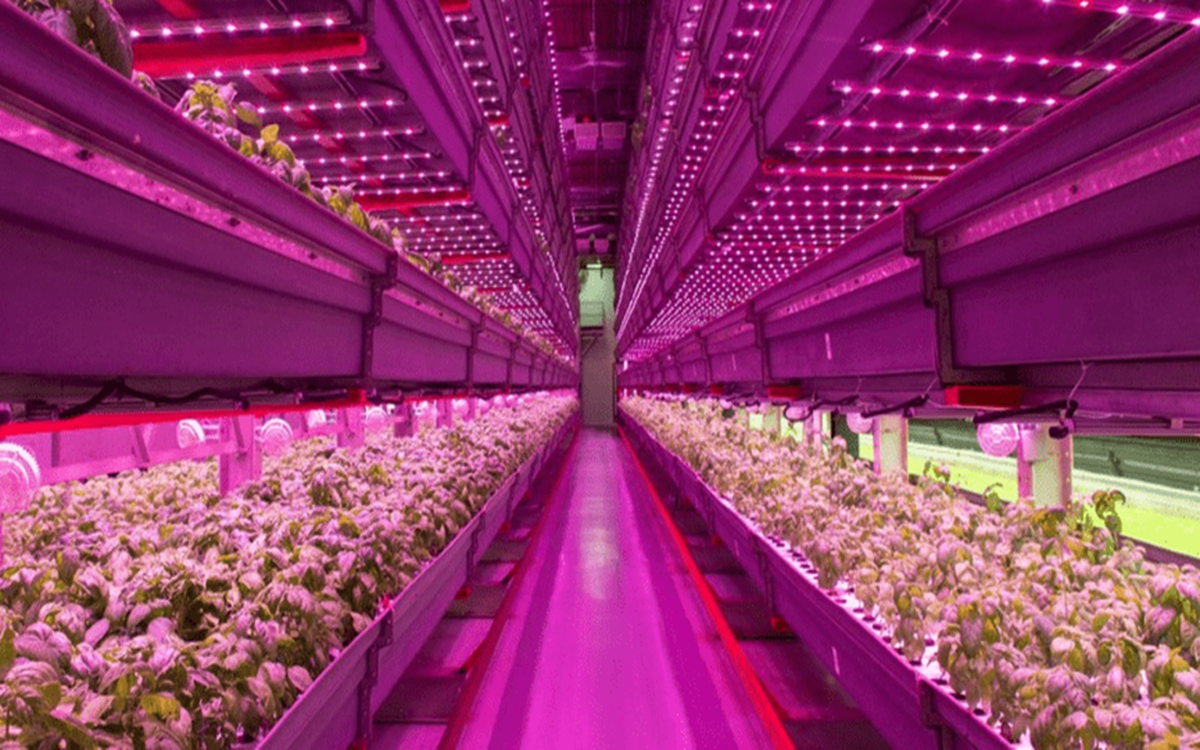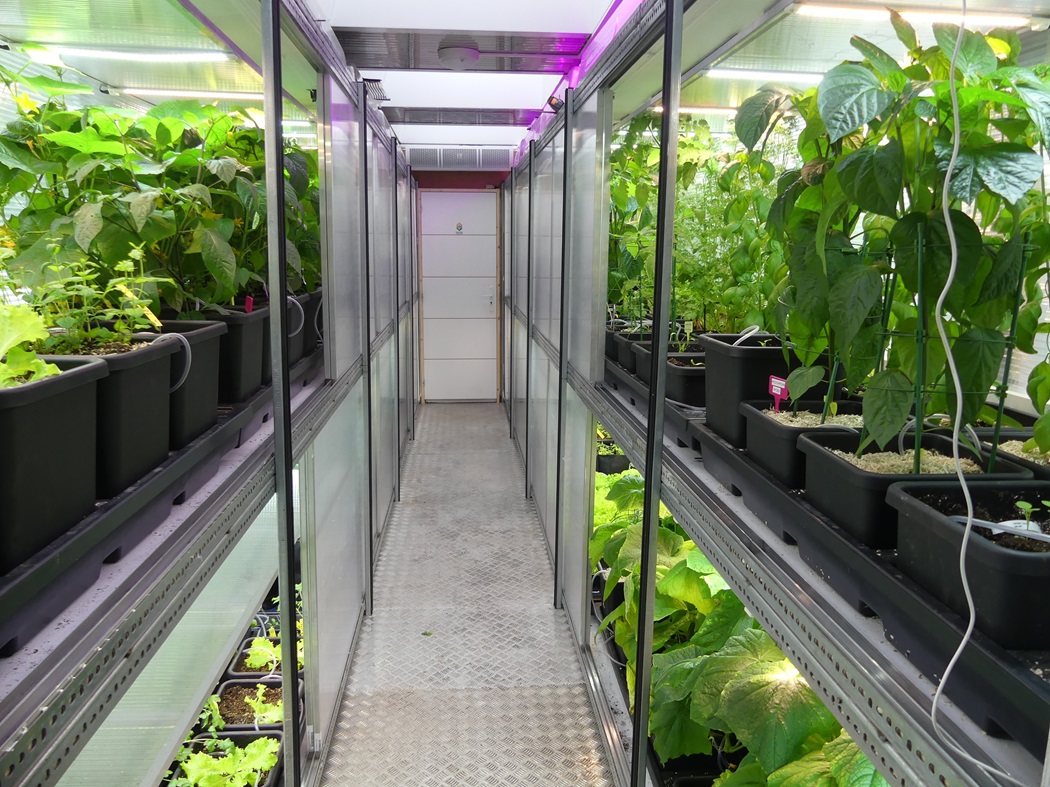This interview details Maui Trout Co., a company based in the United States. The interview is with John Dobovan, CEO of Maui Trout Co.

This all began as a dream in 2013. I was a commercial aquaponics farmer in Waimanalo on the Island of Oahu, raising tilapia and Chinese catfish along with 18 or so varieties of vegetables. I really wasn't happy with either fish species so when the property owner died without ever having signed our lease, I left that farm to my business partner and moved to Maui specifically to raise trout. Trout are a cold-water species and the only way to get water that was cold enough in Hawaii is at elevation.
I settled in Kula, at an elevation of 3,000' on the slopes of Haleakala volcano. Nobody had ever raised trout aquaponically in Hawaii before this, and rarely elsewhere in the world, so I had no template to work from. Trout are also a prohibited species in Hawaii due to very legitimate invasive species concerns so I had to obtain a special import permit from the State of Hawaii to bring in trout eggs. And then spent 2 years building a small hatchery and learning how to raise trout in an experimental aquaponic system. I also tested 16 different crops trying to find the right pairing. I was able to make the system work and got my first few customers then set out to build a small commercial-scale farm to test my system design in June of 2016.

That turned out to be more difficult than I had imagined. Land on Maui, and Kula in particular, is extremely expensive and greatly desired by high-wealth individuals looking for a rural retreat. I was eventually able to lease a couple of acres and set out to build what became Kulahaven Farms. Because this was still experimental, I limited the farm to just 2 crops: rainbow trout and organically-certified watercress. I only had a limited capital base to start so construction took much longer that I'd hoped but we finally had our first watercress crop ready by May of 2018 and our first trout late that year.
I expected we would run into design issues because things always change when you scale up. Kulahaven was the smallest system I could design that would still break-even: the working footprint was just under 13,000 sq. feet. And sure enough, we ran into a slew of problems - from filters to chillers to pests to the County water supply and even electrical power.
We started to work all these things out when Covid hit in early 2020 and we lost 75% of our market overnight. Fortunately, we were able to pivot our sales and by 2021 we had more demand for our watercress and trout than we could possibly meet. By mid-2022 we had our design issues ironed out and were finally at the break-even point. We were in the process of installing a large generator that could run the entire farm when we were hit by a severe storm that knocked out power for a day and water for a week. That event killed all of our market-ready fish as well as all the fingerlings in our hatchery.

At that time, we were just beginning to recover from the losses due to the Covid shutdown and, unable to find any financial support from County, State or Federal sources, we were behind on both rent. The August 2022 storm was the final straw and our landlord cancelled our lease. Despite all the losses, we managed to close out the final quarter of 2022 with a modest profit.
We are now in the process of acquiring land and raising capital to build the large farm we had always envisioned. In particular, we want a site where we can host farm-to-table and walking tours as well as a fishing venue - all things that were denied us by the property manager at the Kulahaven location. We have a proven track record of successful system operation, a long list of customers and a ready market whenever we are back in operation. During both 2021 and 2022 we produced at least a portion of over 200,000 meals on less than 1/3rd acre of land. Out new farm will be capable of up to 16 times that production level.

Farming anywhere is always challenging and even more so in Hawaii. We have some of the world's most expensive agricultural land, inadequate supplies of fresh water and our electrical power is unreliable despite rates that are among the highest in the Nation. We are very efficient in our water use so that is less of a concern. And there is very attractive funding for photovoltaic power systems now and we anticipate building an off-grid system next time. Access to land anywhere in Hawaii remains an issue.
Upcountry Maui is complicated due to the high Kula ag land conversion rates into country estates for high-value individuals. This fuels speculation on a rapidly diminishing resource. That leaves leasing the primary option for future growth. However, building expensive infrastructure on leased land comes with significant risk. We now have a potential solution to this problem but still must find the remaining capital required in order to restart. Venture capital is primarily interested in tech ventures with high potential for short-term gain, making it very difficult to find investors for a farm that is intended to be permanent. But we remain hopeful. Hawaii has a tenuous food supply and imports close to 90% of its food. We will eventually find a capital source that is a concerned by this as we are.

As the only rainbow trout farm in Hawaii's history, we have no direct competitors but there is a strong preference for wild-caught fish here. Hawaii loves fish: we consume 50% more fish per capita than any other state. We spend $265 million annually on imported seafood for retail, 65% of which is wild caught. That is contrary to worldwide trends and will prove unsustainable as wild fish stocks continue to dwindle. Our challenge is convincing Hawaii consumers that locally grown rainbow trout is as sustainable as it is healthy and delicious. We've already won the latter part of that battle through the efforts of some of Hawaii's top chefs, like Chef Perry Bateman, Executive Chef at world-famous Mamas Fish House.
He featured our trout for years and it proved to be a highly popular menu item. But it was an uphill battle initially because many customers and even staff members dismissed the idea of eating 'farmed' fish. It took some time and effort to educate the doubters that our trout are not just delicious but that they are farmed in a manner that recycles virtually all of our water while creating zero waste since all of the fish waste is recycled via natural processes into nutrients for our crop. This is the same cycle that occurs in nature, without contaminants such as heavy metals and radioactive waste, and our fish stocks are not endangered in any way.

Kulahaven Farms, our R&D test phase, was built with a working footprint of just 13,000 square feet. This constituted a single module which we will replicate at least sixfold at the new site for a total planned working area of approximately 2 acres (depending upon terrain). This will include a fish culture system of at least 160,000 gallons, along with at least 24,000 square feet of greenhouse crop cultivation.

We haven't built our new website yet but there is a lot of information on our old site: http://kulahavenfarms.com/









This interview details Sapling, an indoor farming technology company based in the UK. The interview is with Manish Patel, Managing Director at Sapling Automation Ltd. To learn more about Sapling and other indoor farming companies, click on this link!
View Full Interview
This interview details FibreDust, a company based in the United States. The interview is with Andrew D Pidgeon, Director of Marketing at FibreDust. To learn more about FibreDust and other indoor farming companies, click on this link!
View Full Interview
This interview details Tindle, a company based in the United States. The interview is with Andre Menezes, Co-Founder & CEO of Tindle. To learn more about Tindle and other indoor farming companies, click on this link!
View Full Interview
This interview details Wageningen Economic Research, a social-economic research institute based in the Netherlands. The interview is with Coert Bregman, Horticulture Researcher at Wageningen Economic Research. To learn more about Wageningen Economic Research and other indoor farming companies, click on this link!
View Full Interview
This interview details Independent Living Base, an indoor farming technology company based in France. The interview is with Pascal Benveniste, President of Independent Living Base. To learn more about Independent Living Base and other indoor farming companies, click on this link!
View Full Interview
This interview details CHAP, a company based in the UK. The interview is with Fraser Black, CEO of CHAP. To learn more about CHAP and other indoor farming companies, click on this link!
View Full Interview
This interview details Maia Farms, an indoor farming company based in Canada. The interview is with Gavin Schneider, CEO & Co-Founder of Maia Farms. To learn more about Maia Farms and other indoor farming companies, click on this link!
View Full Interview
This interview details CIOPORA, a company based in Germany. The interview is with Andrés Velásquez, Director PR and Communications at CIOPORA. To learn more about CIOPORA and other indoor farming companies, click on this link!
View Full Interview
The interview is with Cary Mitchell, Professor Horticulture at Purdue University. To learn more about Purdue University and other indoor farming companies, click on this link!
View Full Interview
This interview details VoltServer, a company based in the United States. The interview is with James Eaves, Ph.D., Indoor Agriculture Director at VoltServer. To learn more about VoltServer and other indoor farming companies, click on this link!
View Full Interview